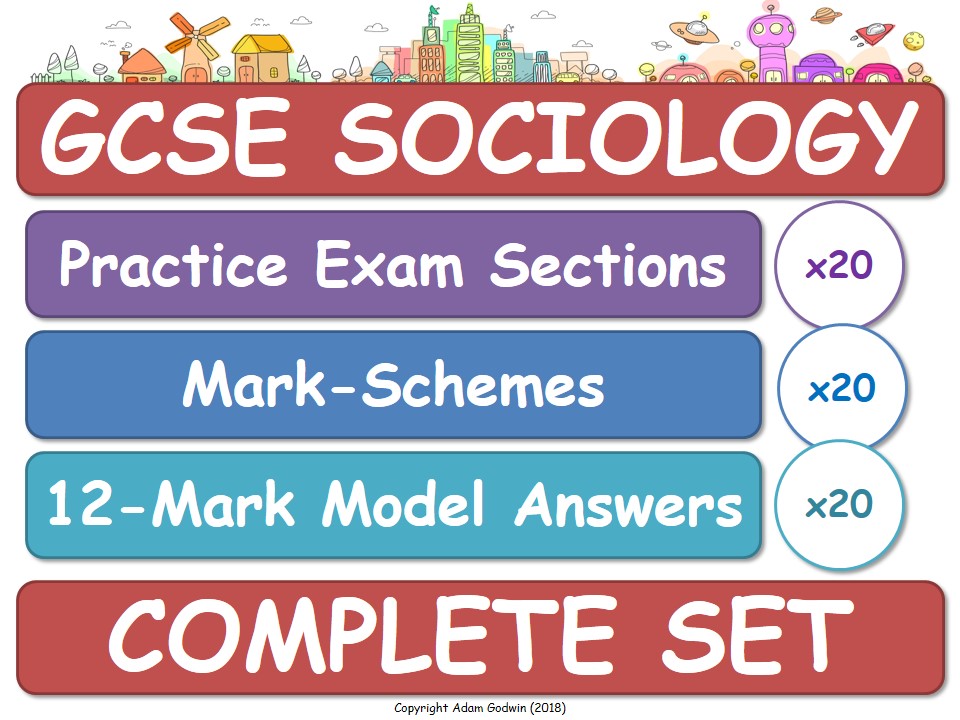Religion, Philosophy, Sociology & Ethics Resource Base
Resources for Religious Studies, Sociology, Philosophy, Ethics and Humanities. We specialise in making whole units and courses for ultimate convenience and time-saving. We always aim to make the best resource for a given topic: our goal is perfection and our resources have helped educate 1 million+ students!

![Research Methods (10 Lessons) [ GCSE Sociology ]](https://d1e4pidl3fu268.cloudfront.net/33d2d29a-7ef7-4791-968c-3cbfd20e830a/BUNDLETEMPLATECOVER3.crop_1591x1200_0,0.preview.jpg)
![EDUCATION (20 Lessons) [ GCSE Sociology ]](https://d1e4pidl3fu268.cloudfront.net/b5888efc-01d5-4a4f-abf6-518f5c35b500/BUNDLECOVER.crop_1599x1200_0%2C0.preview.jpg)
![[P4C] The Moral Dilemma Generator - [200 Slide PPT with 'Randomiser'] PHILOSOPHY FOR KIDS](https://d1e4pidl3fu268.cloudfront.net/b7b601d9-1fb5-41b7-a15f-90b7c7f8816a/Untitled1.jpg)

![The PSHE Debate Pack: Over 600 PSHE, Political and Moral Debates and Discussions [Form Tutor Time]](https://d1e4pidl3fu268.cloudfront.net/72c59a29-7ea6-453b-ac7a-195a4201513c/image.png)
![AQA GCSE Sociology [ 8192 ] - Scheme of Work for New Specification](https://d1e4pidl3fu268.cloudfront.net/cd3744e0-ff4d-4cb0-b648-901ef4aa2172/Cover.crop_960x717_0,0.preview.jpg)

![Crime & Deviance (20 Lessons) [ GCSE Sociology ]](https://d1e4pidl3fu268.cloudfront.net/cfb56889-d2bb-4377-8675-cc34ef17218f/BundleCover.crop_1595x1200_0%2C0.preview.jpg)
![Sociology of the Family (20 Lessons) [ GCSE Sociology ] Families](https://d1e4pidl3fu268.cloudfront.net/c1deaba7-482f-4c34-9c6e-89310be6565e/BundleCover.crop_1599x1200_0%2C0.preview.jpg)
![[P4C] The Philosophical Debate Generator - [200 Slide PPT with 'Randomiser'] PHILOSOPHY FOR KIDS](https://d1e4pidl3fu268.cloudfront.net/11400bc1-aef5-4b48-809e-fecb3c5ea189/Untitled222.jpg)
!['What Does it Mean to be Moral?' -KS3- Moral Philosophy, Animal Rights & Religion [7 Lessons]](https://d1e4pidl3fu268.cloudfront.net/5fb4f0e5-c049-4604-b7d0-6c9e92b5518b/Untitled44.jpg)
![KS3 Islam - Complete Unit [9 Lessons]](https://d1e4pidl3fu268.cloudfront.net/f0cc5c53-ba7d-43fd-8c58-d4f5fcc9fe33/Islam.jpg)
![Social Stratification (20 Lessons) [ GCSE Sociology ] Power & Authority](https://d1e4pidl3fu268.cloudfront.net/2edda67e-6860-475d-a480-90a37645f302/CoverUpdated.crop_1599x1200_0,0.preview.jpg)
![Sociology of the Family (20 Lessons) WJEC / EDUQAS [ GCSE Sociology ] Families](https://d1e4pidl3fu268.cloudfront.net/4110f931-a019-4a45-b9fe-6257ddc505b8/wjeccovergcsesociology.crop_1595x1200_0,0.preview.jpg)


](https://d1e4pidl3fu268.cloudfront.net/4e59c58c-57ab-4885-acba-3df1b8594bc1/Lesson20.jpg)
![[P4C] The Moral Dilemma Generator [Free Demo Version]](https://d1e4pidl3fu268.cloudfront.net/2d7aa42e-487b-437d-91a5-b25e16967eb8/Untitled1.jpg)
![FREE DEMO [P4C] The Philosophical Debate Generator - PHILOSOPHY FOR KIDS](https://d1e4pidl3fu268.cloudfront.net/b6aeb506-30a8-487f-a20e-15a61ee072e3/Untitled222.jpg)
![GCSE Sociology - Awesome Music Videos - Activity - Starter - Fun - Sociological - Free [GODWIN86]](https://dryuc24b85zbr.cloudfront.net/tes/resources/11916835/image?width=500&height=500&version=1528407124093)